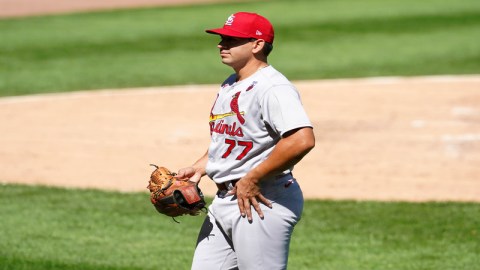Economic success for some, bad business for others. It seems risky to affirm or deny that these Pan-Am Games have left Guadalajara and Mexico a profit economically. From different sectors come different opinions, equally varied, that continue to feed the controversial mentality about the profitability of these type of games.
With four days remaining before the culmination of the games, the Secretary of Economic Promotion (Seproe) announced that the games had created $300 million. That amount comes from the sale of official products, hotels, food, transport, and entertainment. Also, according to Miguel Gonzalez, director of the entity, the state industry grew by 4 percent and the job market rose by 10 percent.
From the same organization, Alonso Ulloa, said that thanks to the games there will be an extra “$1,300” million and for that reason the Games are “extraordinary.”
To reinforce the theory that the competition was a success, the organization says that $9.5 million were collected in ticket sales alone.
Regardless, these numbers contradict with the opinion of many businessmen who believe that not only have the Games not generated extra money, but have hurt them. Plazas, commercial centers in the open, tend to see a lot of people traveling from one place to the next, but few go into the shops to buy anything.
The newspaper Milenio took charge of highlighting the negative cost of the games in some articles a week back. Although the balance was not equal, some were happy for the games while others assured it was “the worst thing that could happen.”
Looking to diminish the large amount of traffic that characterizes the city, the municipal government of Guadalajara suspended classes in the local schools during the two weeks of the games. This measure, which looked to alleviate the problem, generated anger from taxi drivers, saying families have used their cars instead of public transportation during that time period. According to the taxi drivers, they also were hurt by the lack of official cars of buses to transport officials and journalists related to the Games.
From Puerto Vallarta, the beach volleyball venue and other sports, there were also some complaints.
“It is definitely a risk, to make investment, one waits for people and there aren’t the profits expected,” said Margarita Ortiz, president of the labor union confederation in Mexico. “This October was the same as any October.”
To create yet another contradiction, in a smaller scale in terms of income, some minor businessmen like those located outside of the Telmex track stadium had the chance to get a huge influx for less than a week.
For example, on a day that started at midday and ended just before nightfall, there were a total of 700 liters of beer sold, a large amount but nothing close to the 3,500 sold in Omnilife Stadium during the opening ceremony of the games.
For Rodrigo Montanes, leader of the Heineken project in the Pan-Am Games, these games mean an ideal opportunity to position the premium beer within a market saturated with brands.
The final conclusion is the same one found on the field, or court, that there are winners and losers. Here, however, the outcome is not a goal, a pass, or a basket, but a bank account.
Thumbnail photo courtesy of Mexsport
Follow Team USA and the Pan-Am Games on Terra.com.



